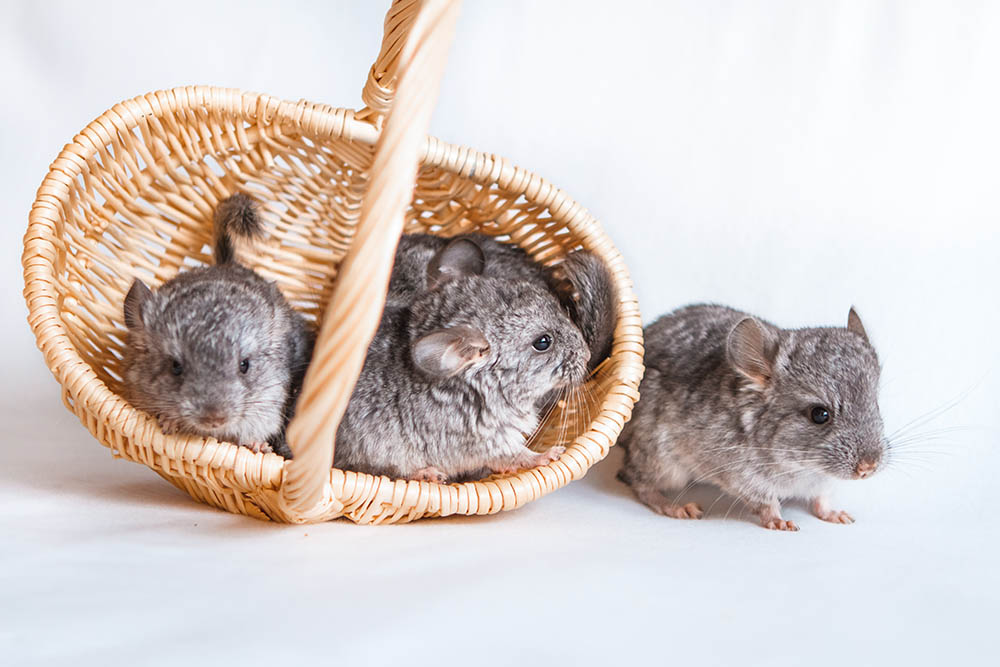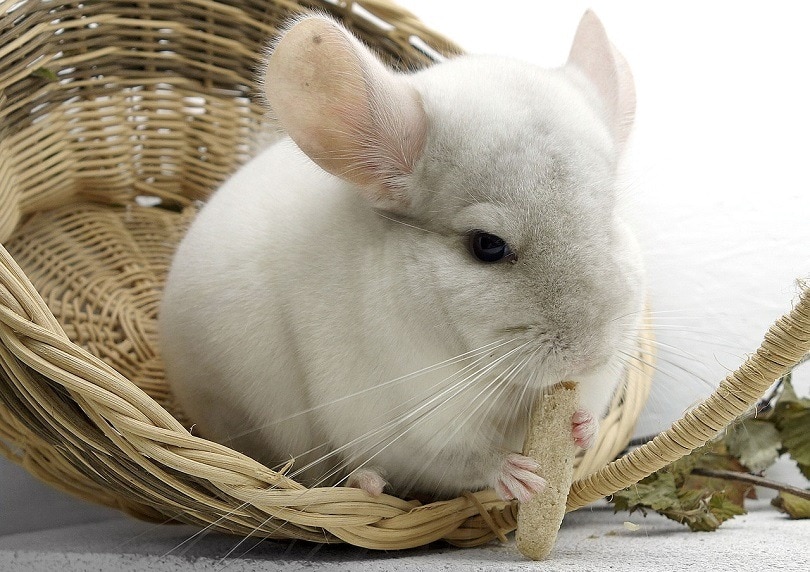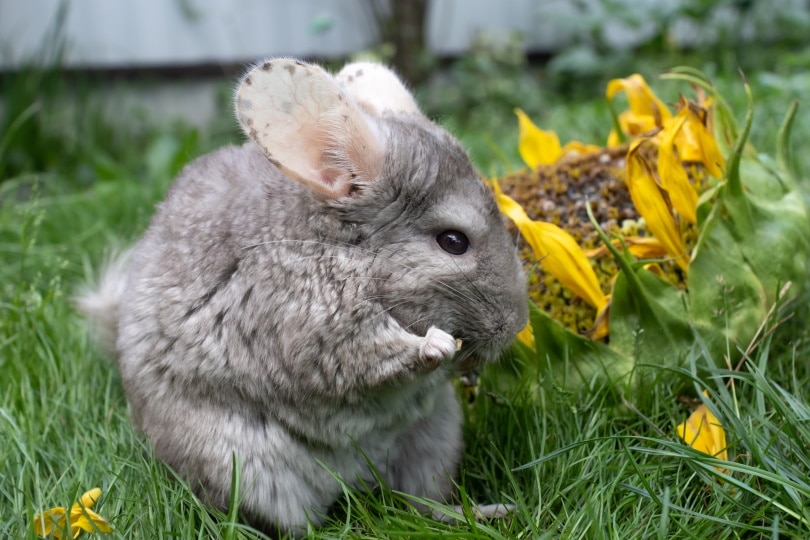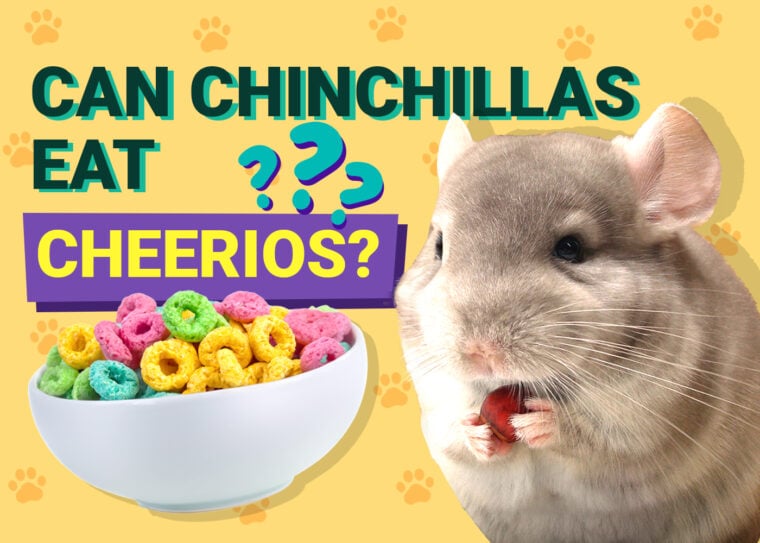
Cheerios is a popular, healthy breakfast cereal that many people enjoy, but can chinchillas eat it? Yes, chinchillas can eat Cheerios, but they should only be given in moderation. Cheerios have a higher concentration of phosphorus than chinchillas need, so too much can cause a nutritional imbalance.
Keep reading to learn more about Cheerios and chinchillas and what foods you should and shouldn’t give your pet for optimal health.
What Are Cheerios?
Cheerios is a whole-grain cereal made of oats, corn starch, salt, sugar, tripotassium, phosphate, and vitamin E. While all of these ingredients are safe for chinchillas, too many can be a problem.
One of the best aspects of (plain) Cheerios is that they’re low in calories and fat. They also have many essential nutrients, including iron, fiber, and vitamin D.
Here’s the nutritional content of 1 cup (28 grams) of plain Cheerios without milk:
| Calories: | 100 |
| Fat: | 2 grams |
| Carbs: | 20 grams |
| Fiber: | 3 grams |
| Sugar: | 1 gram |
| Protein: | 3 grams |
| Vitamin A: | 10% of the DV |
| Vitamin C: | 10% of the DV |
| Vitamin D: | 10% of the DV |
| Vitamin B12: | 25% of the DV |
| Calcium: | 10% of the DV |
| Iron: | 45% of the DV |
| Zinc: | 25% of the DV |
Should Chinchillas Eat Cheerios?
Plain Cheerios are perfectly safe for chinchillas to eat. They have no ingredients that are toxic or hazardous to chinchillas on their own. However, chinchillas need a proper balance of calcium and phosphorus at a two-to-one ratio. Both of these essential minerals are necessary for proper health and numerous physiological functions.
Without the proper balance, a chinchilla can develop muscular and bone problems, muscle spasms, and brittle bones. Caught early, a calcium-phosphorus imbalance can be corrected with mineral supplements under the supervision of a veterinarian.
Cheerios have a one-to-one ratio of calcium to phosphorus, which doesn’t provide enough of the calcium that chinchillas need. Due to this, Cheerios should be limited to treats and not as additions to regular meals.
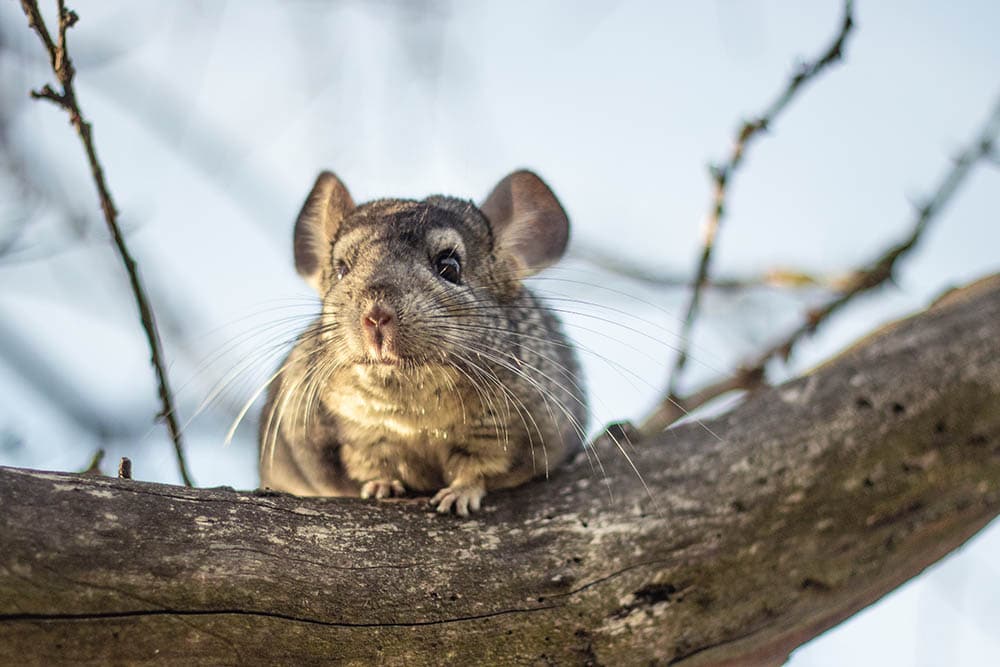
What About Flavored Cheerios?
Your chinchilla can have a few Cheerios every now and then without any adverse effects. They should be considered treats and not a regular part of the meal, however. Treats specifically designed for chinchillas should be the preferred option, but there’s nothing wrong with an occasional Cheerio.
That said, you should only feed original, plain Cheerios to your chinchilla. Avoid any of the flavored varieties, such as Honey Nut or Multigrain, since these have more sugar content.
What Foods Are Toxic to Chinchillas?
Chinchillas are herbivores and native to South America. In the wild, chinchillas eat grasses, leaves, and twigs. As a result, pet chinchillas need a diet that’s high in fiber and protein but low in moisture and fat.
These foods either contain inappropriate nutritional profiles for your chinchilla that can adversely affect their health or are poisonous to them. It’s also best to avoid foods with a high fat content, as these can make chinchillas sick or overweight.
When in doubt, avoid feeding your chinchilla anything unfamiliar, and consult with your veterinarian about an appropriate diet and treats for your individual pet.
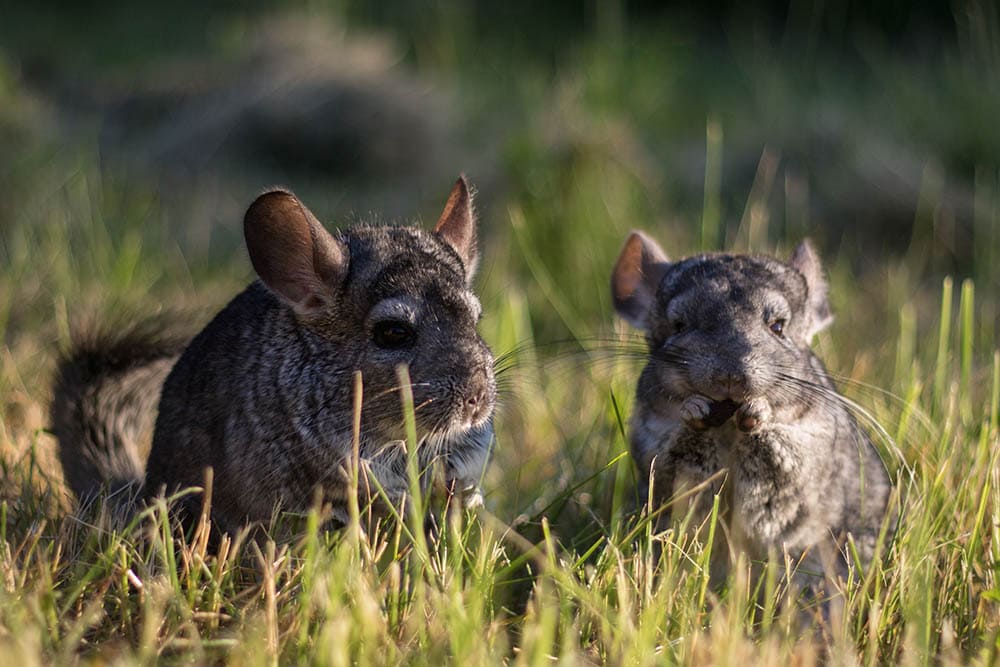
What’s the Ideal Diet for Chinchillas?
Chinchillas need a high-fiber diet that consists of grass hay, such as Timothy hay, orchard grass, oat hay, or meadow hay. You may also add alfalfa hay on occasion, but it shouldn’t be the only hay offered. Alfalfa hay is high in calcium and can contribute to bladder stones. You can add a small amount of commercially available pelleted chinchilla food to your chinchilla’s diet. A tablespoon or two each day is appropriate for most chinchillas.
If fed properly, chinchillas don’t need vitamin or mineral supplements. For treats, you can offer small portions of high-fiber fruit, such as apples, or low-calcium green vegetables. Plenty of commercial chinchilla treats are available, and they’re safer for your chinchilla than “people food.”
Your chinchilla needs a diet low in moisture, but they should still have access to fresh, clean water at all times. Depending on the mineral content of your tap water, you may want to give your chinchilla only bottled spring or distilled water. You should clean your chinchilla’s water container each day with soap and water.
Most people offer water through a sipping bottle fastened to the side of the cage, but you can also use a bowl. Keep in mind that bowls are more likely to get dirty or spill, so you have to be diligent about changing out the water and washing the bowl. Never let water sit, even if it looks clean, since it can harbor dangerous bacteria.
Conclusion
Cheerios can be fun for your chinchilla every now and again, but they shouldn’t be included in their daily diet. One or two individual Cheerios on occasion can be tasty and harmless treats for your pet, as long as you remember moderation.
Featured Image Credit: PublicDomainPictures, Pixabay


